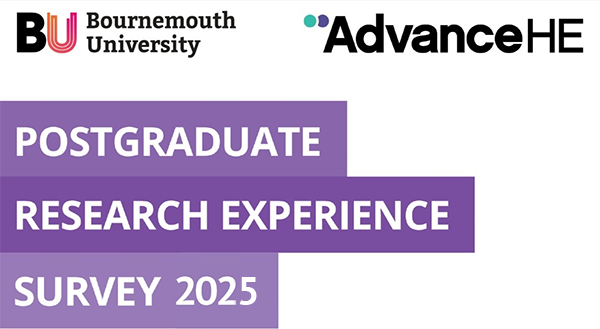
Free lunch voucher & prize draw for all PGRs – please complete the Postgraduate Research Experience Survey 2025!
Check your email to access your link to complete the survey.
Did you know you can get a FREE lunch voucher if you complete the Advance HE Postgraduate Research Experience Survey (PRES) 2025. This is worth £3.95 which covers the cost of a meal from the Savour menu but can be used to purchase any items from Chartwells outlets. Please come to the Doctoral College (DLG08, Talbot Campus) to collect your voucher. If you are based in Lansdowne Campus, you can collect your vouchers from Tina Ikin in BG507.
The voucher can be used at the following outlets on Talbot and Lansdowne Campus:
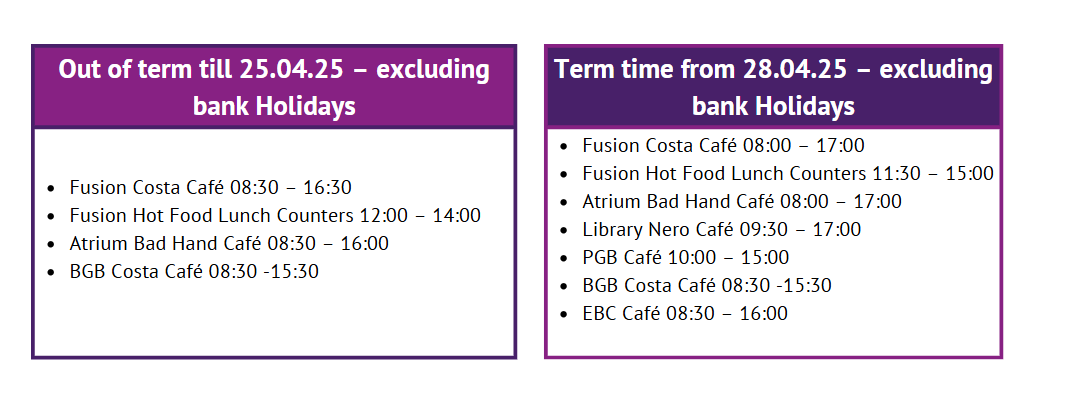
On completion of the survey, you will also be entered into a free prize draw, with the opportunity to win one of four £50 shopping vouchers. As a thank you for your time, we will be making a £1 donation on your behalf to the student mental health charity, Student Mind.
So far 35% of PGRs at BU have taken part in this survey. If you have not already completed it, we would really appreciate if you could find a few minutes to respond and tell us about your experience this year. The survey helps us improve the student experience at BU and compare ourselves with other institutions across the country.
To do this we would like to know what you think works well and what as a university we could do better.
How do I take part?
PGRs have now received an email containing a unique link which will allow you to access and complete the survey. If you can’t find this email, contact PRES@bournemouth.ac.uk and we’ll help you to get access.
What will I be asked?
The survey will take around 15 minutes to complete. Your response is confidential, and any reporting will be entirely anonymous. The survey is your chance to tell us about your experience as a PGR at BU. It will ask you to share your views on supervision, resources, research community, progress and assessment, skills and professional development and wellbeing.
Why should I take part?
Your feedback is important. The Postgraduate Research Experience Survey is the only national survey of PGRs and so is the only way for us to compare how we are doing with other institutions and to make changes that will improve your experience in the future.
More information
If you would like to know more about the survey, please visit: PRES 2025.
If you would like to know more about the surveys at Bournemouth University, please visit: Your feedback | Bournemouth University.
Please click here to see actions that we have taken based on feedback from previous surveys.
We hope you take the opportunity to get involved this year and help us make improvements to your experience.
Best wishes,
The Doctoral College
For any PRES related queries, please email: PRES@bournemouth.ac.uk

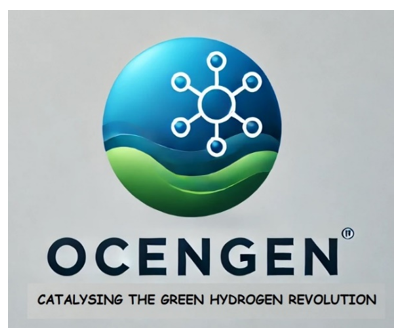
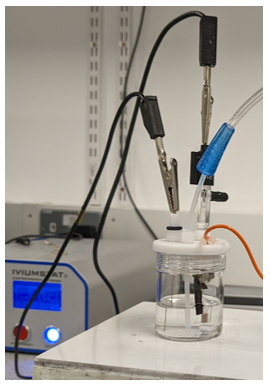
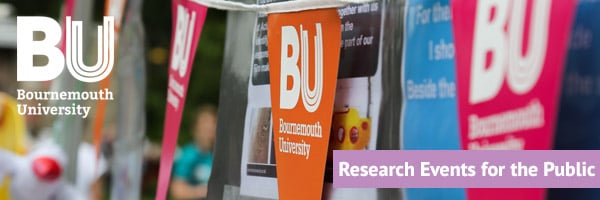




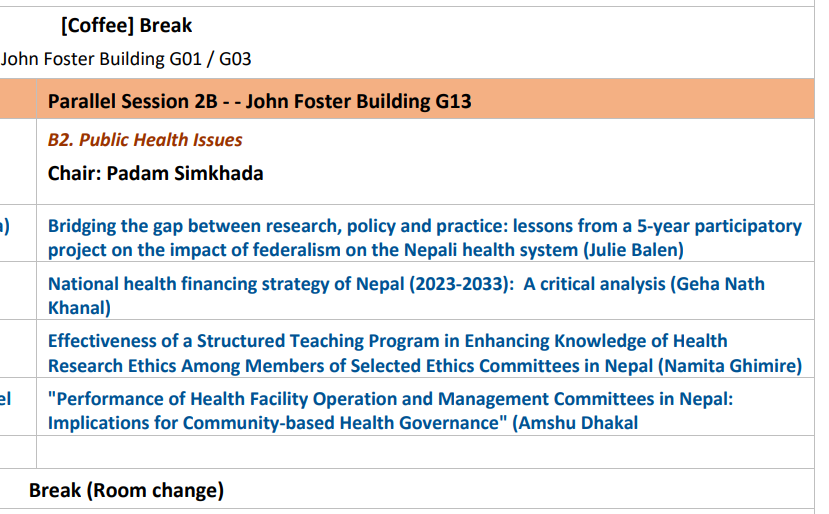






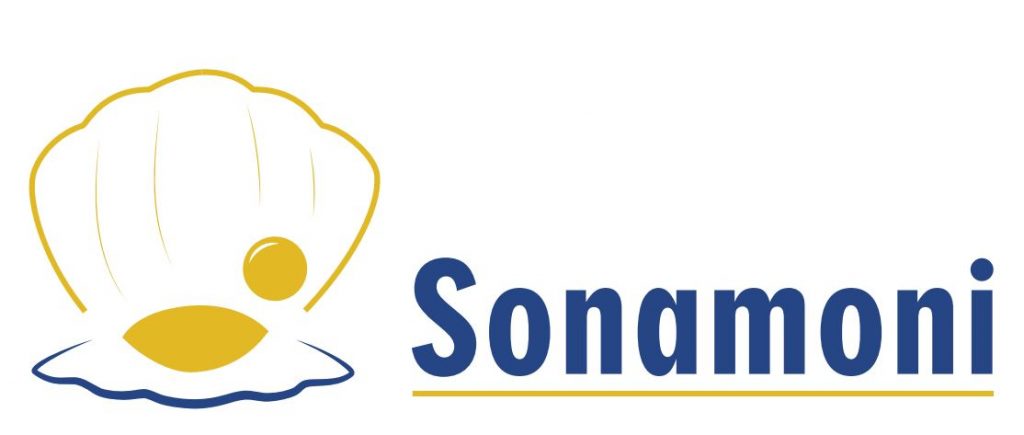
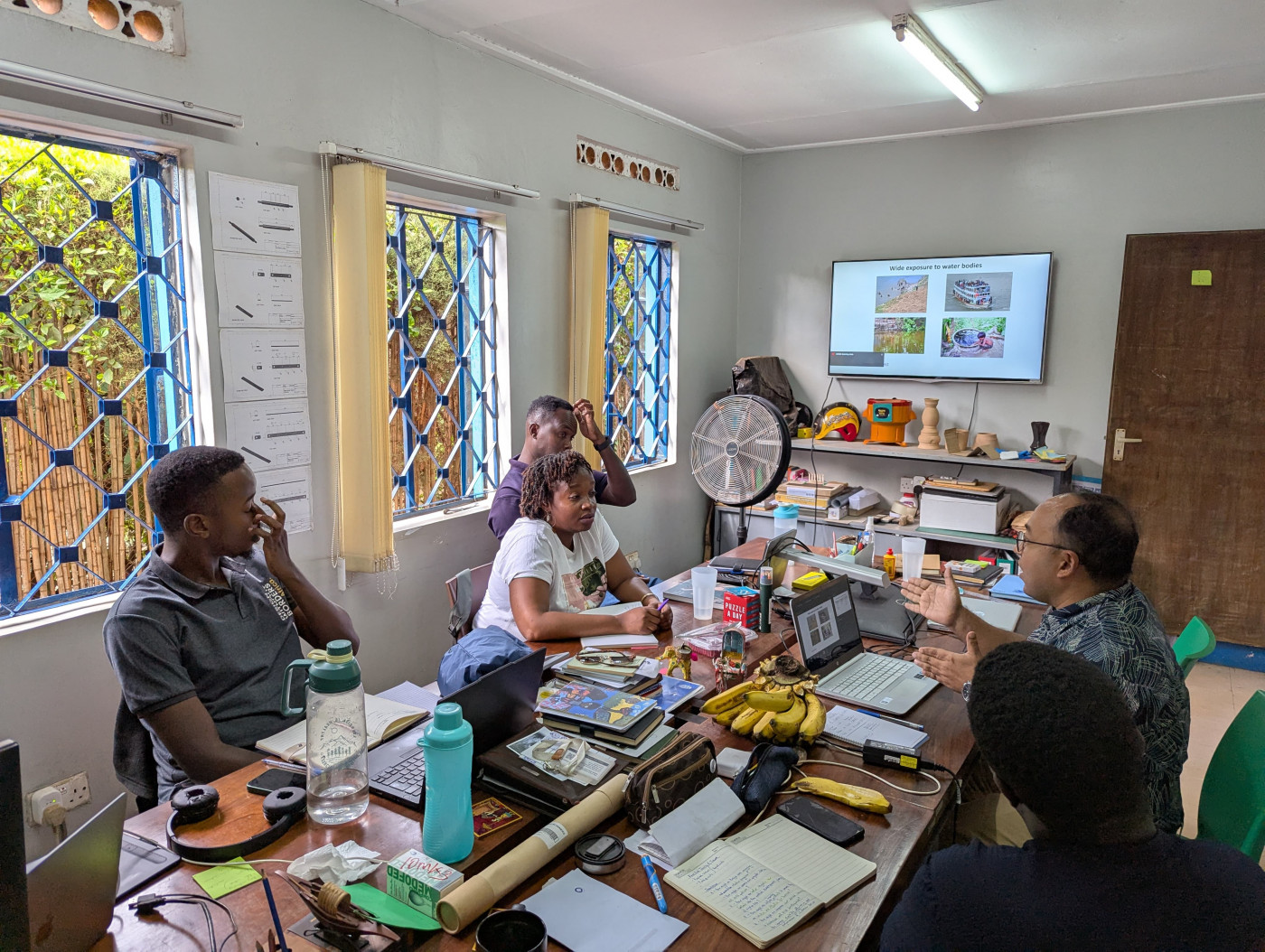


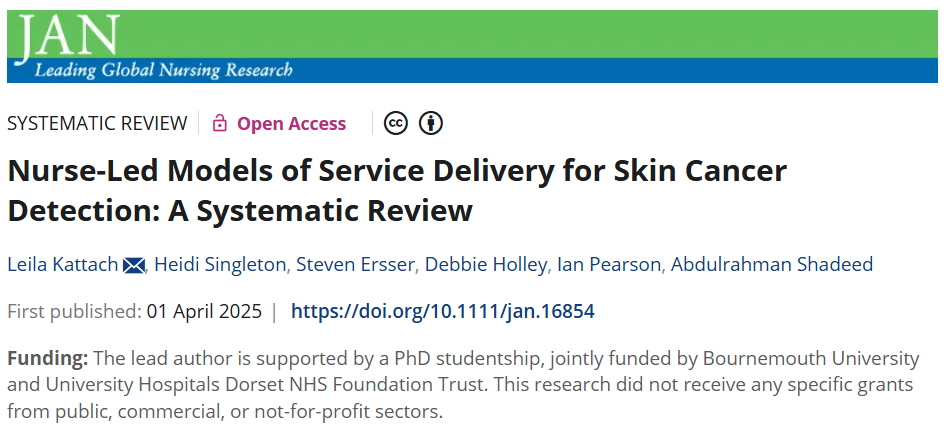

 Online information session
Online information session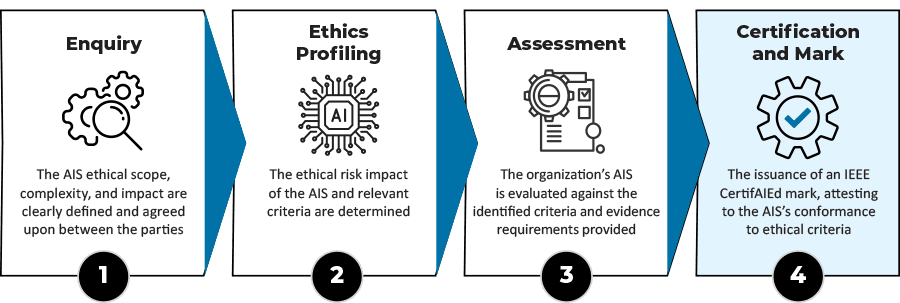

 Our new
Our new 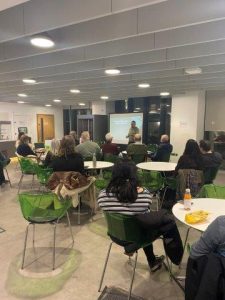
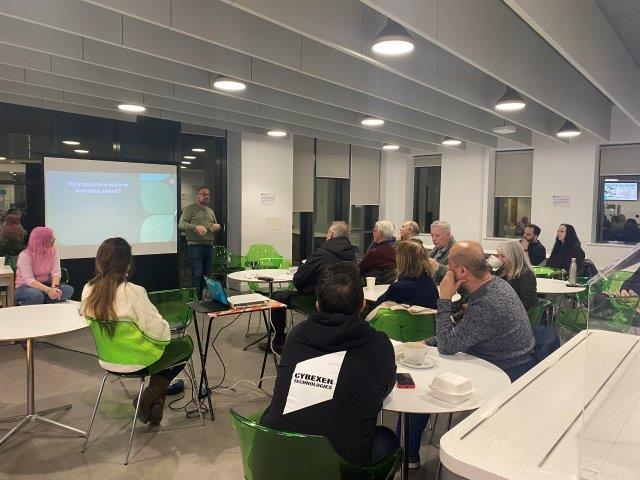
 Next up in our Research Café series
Next up in our Research Café series










 New CMWH paper on maternity care
New CMWH paper on maternity care From Sustainable Research to Sustainable Research Lives: Reflections from the SPROUT Network Event
From Sustainable Research to Sustainable Research Lives: Reflections from the SPROUT Network Event REF Code of Practice consultation is open!
REF Code of Practice consultation is open! ECR Funding Open Call: Research Culture & Community Grant – Apply now
ECR Funding Open Call: Research Culture & Community Grant – Apply now ECR Funding Open Call: Research Culture & Community Grant – Application Deadline Friday 12 December
ECR Funding Open Call: Research Culture & Community Grant – Application Deadline Friday 12 December MSCA Postdoctoral Fellowships 2025 Call
MSCA Postdoctoral Fellowships 2025 Call ERC Advanced Grant 2025 Webinar
ERC Advanced Grant 2025 Webinar Update on UKRO services
Update on UKRO services European research project exploring use of ‘virtual twins’ to better manage metabolic associated fatty liver disease
European research project exploring use of ‘virtual twins’ to better manage metabolic associated fatty liver disease